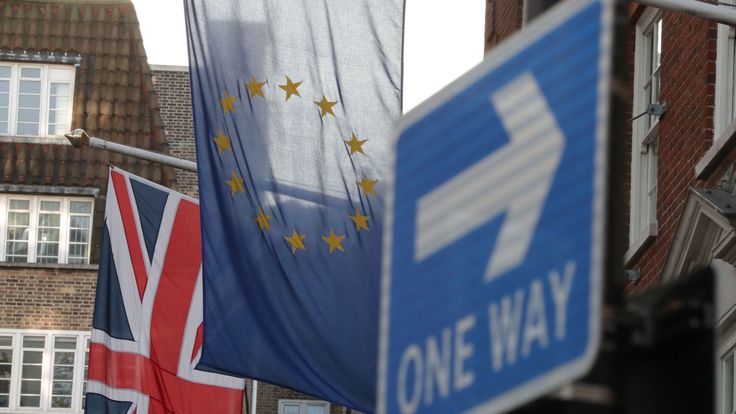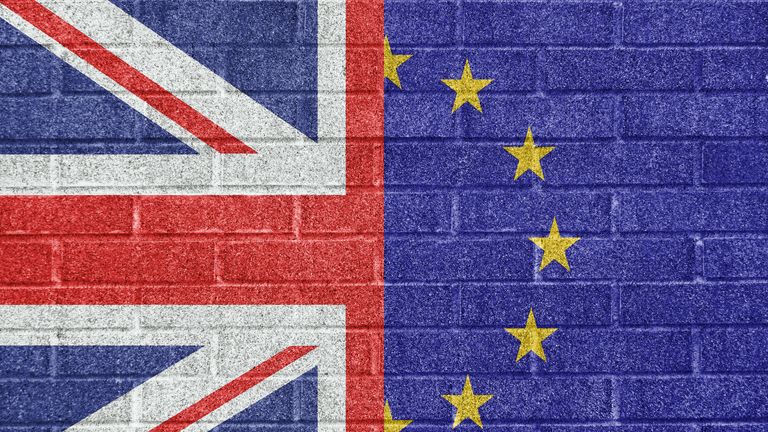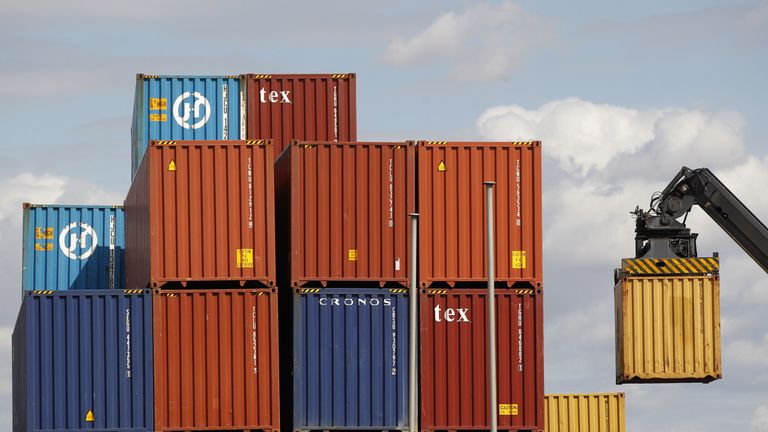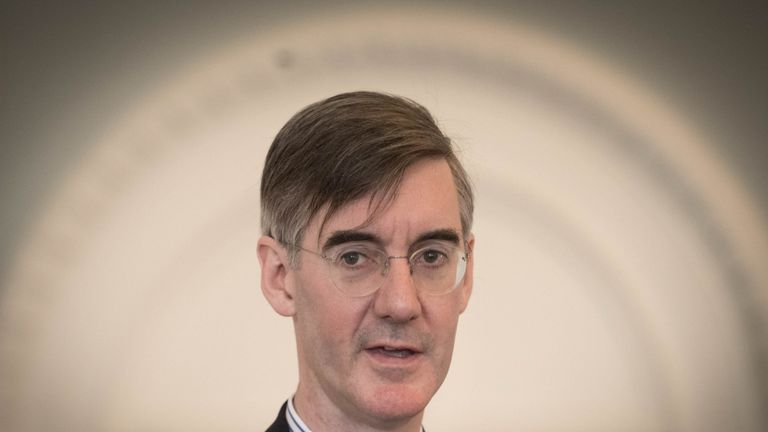Sky Views: 'Grand compromise' is only option for Brexit

Monday 4 June 2018 09:51, UK
Faisal Islam, political editor
The seismic activity is building up on Mount Brexit. This month it might just blow, over the planned attempts to overturn 15 Lords amendments to the EU Withdrawal Bill.
The pressure looks to have delayed a much-anticipated white paper until after the EU summit at the end of June.
The summit itself looks unlikely to offer much progress, let alone "substantial progress" over the Northern Ireland issue.
Business groups are fed up with the uncertainty and will today warn the PM clearly that time is up for their decisions as how to operate from April 2019.
The European Roundtable of Industrialists, which met the PM last week, took the unusual step of issuing its own statement to that effect afterwards: "Uncertainty causes less investment," it said.
Dexeu (Department for Exiting the European Union) is scrambling around trying to make various sequels of "Max Fac" function via wider border buffers or even a Liechtenstein-style dual system for Northern Ireland.
Meanwhile, the Police Service of Northern Ireland has called off the sale of three border police stations, amid Brexit uncertainty, implying they could be required for the post-Brexit border.
The parliamentary maths are inescapable, the weak bargaining position with the EU now the Article 50 timetable is running out of time, is crystal clear.
Some Brexiteers who complain of EU bullying were a year ago saying "we hold all the cards". The former would not be possible if the latter was true.
HMS Brexit listlessly drifts towards a large iceberg. Indeed, the ship appears to be relying on hitting the iceberg as a way of changing direction, rather than actively steering towards a viable landing point.
What is blazingly, inescapably obvious is that some sort of grand compromise is now the only option.
Not everyone will be happy, of course, but achieving that was never on the cards.
Some Tory MPs wearily talk of just wanting it all to go away quickly so they can concentrate on more substantive policy matters and move on from three years of Brexit-induced legislative inertia.
Open Europe, the think tank that was highly influential in the Cameron renegotiation and is headed up by a former top adviser to Michael Gove, has come up with a decent effort, worthy of serious consideration.
It advocates aligning with EU standards and regulations for the trade in goods, and, mainly, diverging for services. Aligning on goods mostly, and even wholly, helps deal with some of the border problems.
It does not advocate staying in a customs union long term, wanting full freedom to change tariffs in order to negotiate new trade deals.
It is a serious attempt to acknowledge the potential economic damage - in particular in industries from cars to plane-making that are reliant on integrated supply chains and "just in time" manufacturing methods.
This report acknowledges, however, that there is insufficient time to arrange a quick customs solution, so an exit from the customs union may be put on hold.
There are big problems though.
Above all, what is the interest of the European Union in allowing existing terms for lucrative high-tech manufacturing, while the UK service sector out-competes and undercuts the EU27?
In particular, why would they offer a tailored complicated hubris deal when there does appear to be a majority in parliament for staying in some form of customs union?
Former ministers Amber Rudd, Justine Greening and Damian Green have been trying to forge a "sensible Brexit" middle ground.
The question - is there a Brexit acceptable to Jacob Rees-Mogg and the European Research Group that will also be backed by Anna Soubry and friends?
The calculation from the opposition, including the closest of Corbyn allies, is that Labour is the only party that can sell a soft Brexit compromise to the country.
The divides within Labour on Brexit are clearly still apparent. Ultimately, however, they believe the country is more pragmatic than ideological on this issue.
A compromise of some sort is on the cards, and is starting to seem inevitable.
Whoever owns, defines, and sells this compromise, will end up the ultimate winner of this political impasse.




